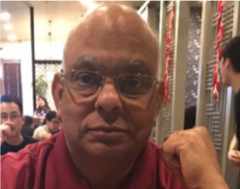Abstract
Research on cancer initiation, progression and the associated issues of therapy and cure have thus far been overwhelmingly within the purview of biochemistry, genomics, and cell biology of cancer. This research, while providing factual and empirical knowledge, and a few limited successes, lacks organizing principles and quantitative characterizations of the various processes involved that are typically in the purview of physical sciences – physics, chemistry, computer science, mathematics and engineering. Over the past ten years, the National Cancer Institute, disappointed with the inadequate return on investment into cancer research, established multiple research centers based on physical sciences. In this talk, I plan to cover four issues: (i) Criticism of the current state of the art research; (ii) New approaches based on physical sciences; (iii) A few selected results from across the globe within the new perspective; and (iv) A list of viable projects to pursue, with specific emphasis on: a precise, functional characterization of healthy vs. cancerous tumors, the transitions from healthy to cancer states, and the transitions from localized tumors to the metastatic state. Mathematical approaches – growth models and stochastic models – will be discussed briefly. The overall purpose of the talk is to generate interest in developing a systemic view of cancer.
Speaker
Dr. Kumar is a Professor of Electrical and Computer Engineering. After receiving his Ph.D. in Theoretical Physics in 1978 from The Indian Institute of Science, Bangalore, he worked in England, Belgium, Canada and the U.S. His research spanned multiple disciplines – disordered systems, solid state electronics, mathematical approaches to various solid state and liquid state systems, superfluid 3He and spin glasses. More recently he has been studying mathematical modeling of cancer. Over the past fifteen years, he has also been involved in enhancing the STEM curriculum in middle and high schools.
